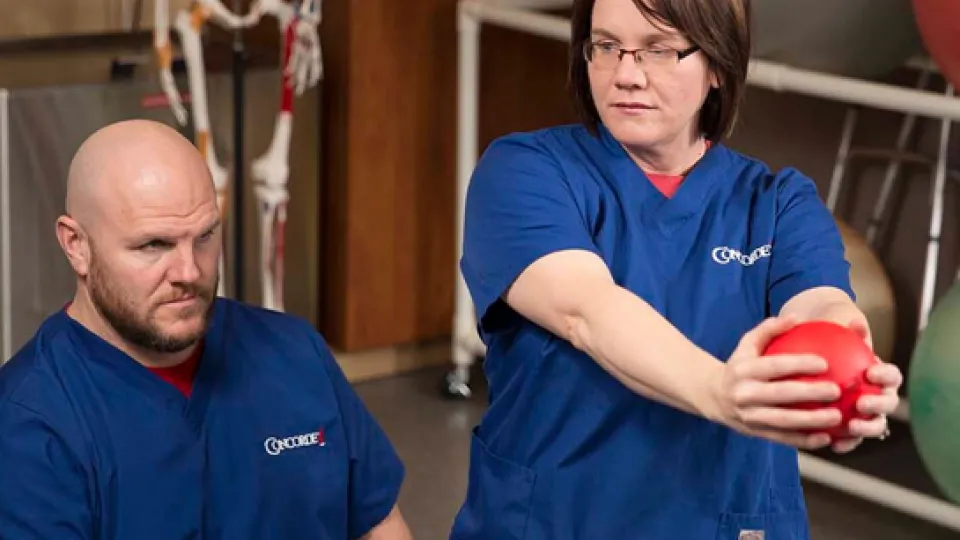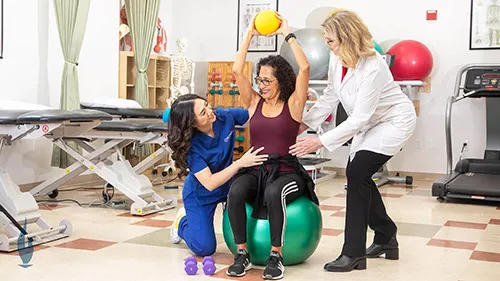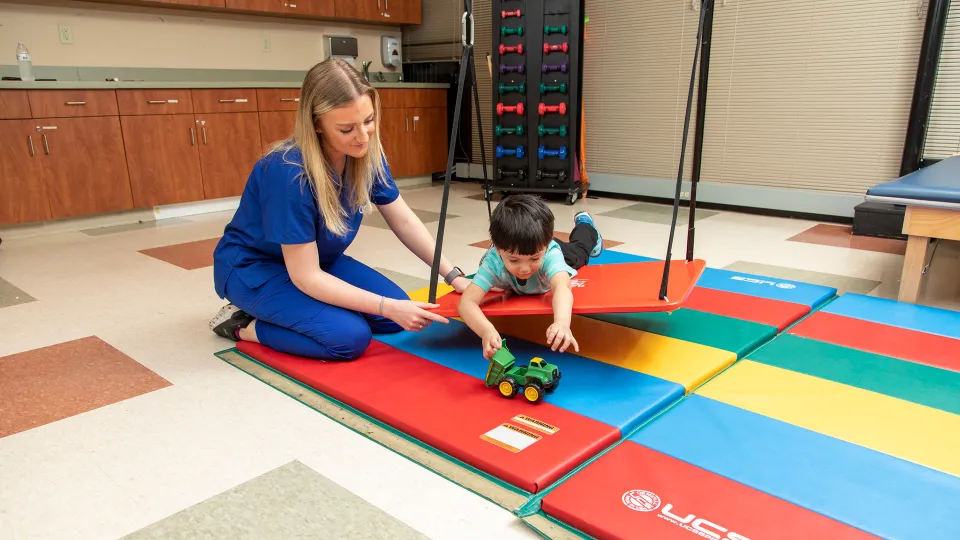
Some confuse the jobs of an Occupational Therapy Assistant (OTA) and a Physical Therapist Assistant (PTA) thinking they are the same thing and they use the terms interchangeably. While the two are similar in many ways, they also have differences.
While both roles provide essential hands-on rehabilitative work to help clients perform everyday tasks as independently as possible, each field takes a diverse approach getting people back to their normal lives. To get a better understanding of what each does let’s take a look at what really is similar and different about OTA and PTA’s.
Similarities for OTA and PTA jobs
Even though the fields of occupational therapy and physical therapy serve different roles in health care, there is a lot of crossover between the two.
- Work Environment- the healthcare settings of both professionals are the same. They work in home healthcare facilities, hospitals, physicians offices, nursing care facilities, offices of the speech therapist, audiologist, etc. Both work as part of the team having doctors, nurses, and other medical professionals.
- Skills and Qualities- there is no major difference in the skills and traits required for physical and occupational therapy, and some of them are general and common. For example, you need to be patient, determined, must possess excellent communication and interpersonal skills, and documentation skills. You must also be able to apply problem-solving skills and be organized.
- Physical demands- both jobs require excellent physical stamina because most of their time is spent standing and teaching physical exercises to patients.
Differences between being an OTA and a PTA
Basic Differences
Occupational Therapy Assistant: Occupational therapy is a holistic approach that promotes health and helps people perform basic activities throughout the lifespan. It is focused on making people as independent as possible. Therapy is normally required by individuals who are physically or mentally impaired, suffering from a work-related injury, have developmental disabilities, or after an attack. An occupational therapy assistant works on all aspects- physical, mental or cognitive.
Physical Therapist Assistant: Physical therapy or physiotherapy, on the other hand, focuses on improving mobility and functioning, eliminating disabilities and impairments and eventually, ameliorate the quality of life. Therapy usually teaches the patients to do normal everyday activities such as getting in or out of bed, stand up, walk, move, etc. Therapy is generally administered to the patients with back pain, multiple sclerosis, Parkinson's disease, osteoarthritis, slip disc and more. This profession basically works on improving the physical state of a person.
Education
Occupational Therapy Assistant

How To Become an Occupational Therapy Assistant
To become an OTA, a person must complete an associate degree program from an institutionally accredited school or college. The aspirants must also complete 16 weeks of fieldwork to gain the practical experience. At Concorde Career College you can become a OTA in as few as 20 months*.
Physical Therapist Assistant

How To Become a Physical Therapist Assistant
To become a PTA, a person must successfully complete an associate degree program (including practical program) from an institutionally accredited institute or school. The courses typically is 2 years (5 semesters), and it comprises of algebra, physiology, English, anatomy, exercise physiology, biomechanics, and psychology. At Concorde, because of our accelerated training program, you can become a PTA in as few as 20 months*.
License
Occupational Therapy Assistant: The program of OTA is licensed by Accreditation Council for Occupational Therapy Education, which is a part of American Occupational Therapy Association.Whereas, the examination for the same is conducted and administered by National Board for Certification in Occupational Therapy (NBCOT).
Physical Therapist Assistant: The courses and degrees of the physical therapy assistant are accredited by Commission on Accreditation in Physical Therapy Education(CAPTE. The examination is managed by Federation of State Boards of Physical Therapy.
Begin your OTA or PTA Journey Today
Now that you understand the difference between occupational therapy assistant and physical therapy assistant, it’s time to pursue your passion. If you’re ready to start your health care career and join the noble and diverse field of occupational therapy or physical therapy, contact Concorde's admissions team today.
Interested In How To Become an Occupational Therapy Assistant?
Click here to explore Occupational Therapy Assistant Programs near you!
Interested In How To Become a Physical Therapist Assistant?
Click here to explore Physical Therapist Assistant Programs near you!
*Program lengths vary by location and Concorde cannot guarantee salary or employment.
Take The Next Step Towards a Brighter Future
Interested in learning more about our Occupational Therapy Assistant program?
We have a Concorde representative ready to talk about what matters most to you. Get answers about start dates, curriculum, financial aid, scholarships and more!







